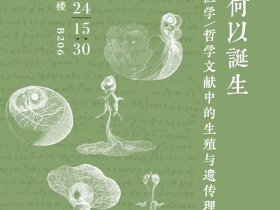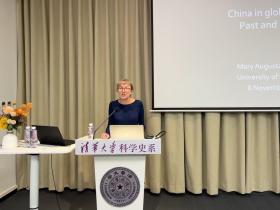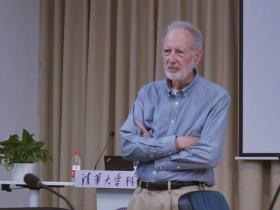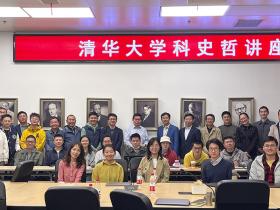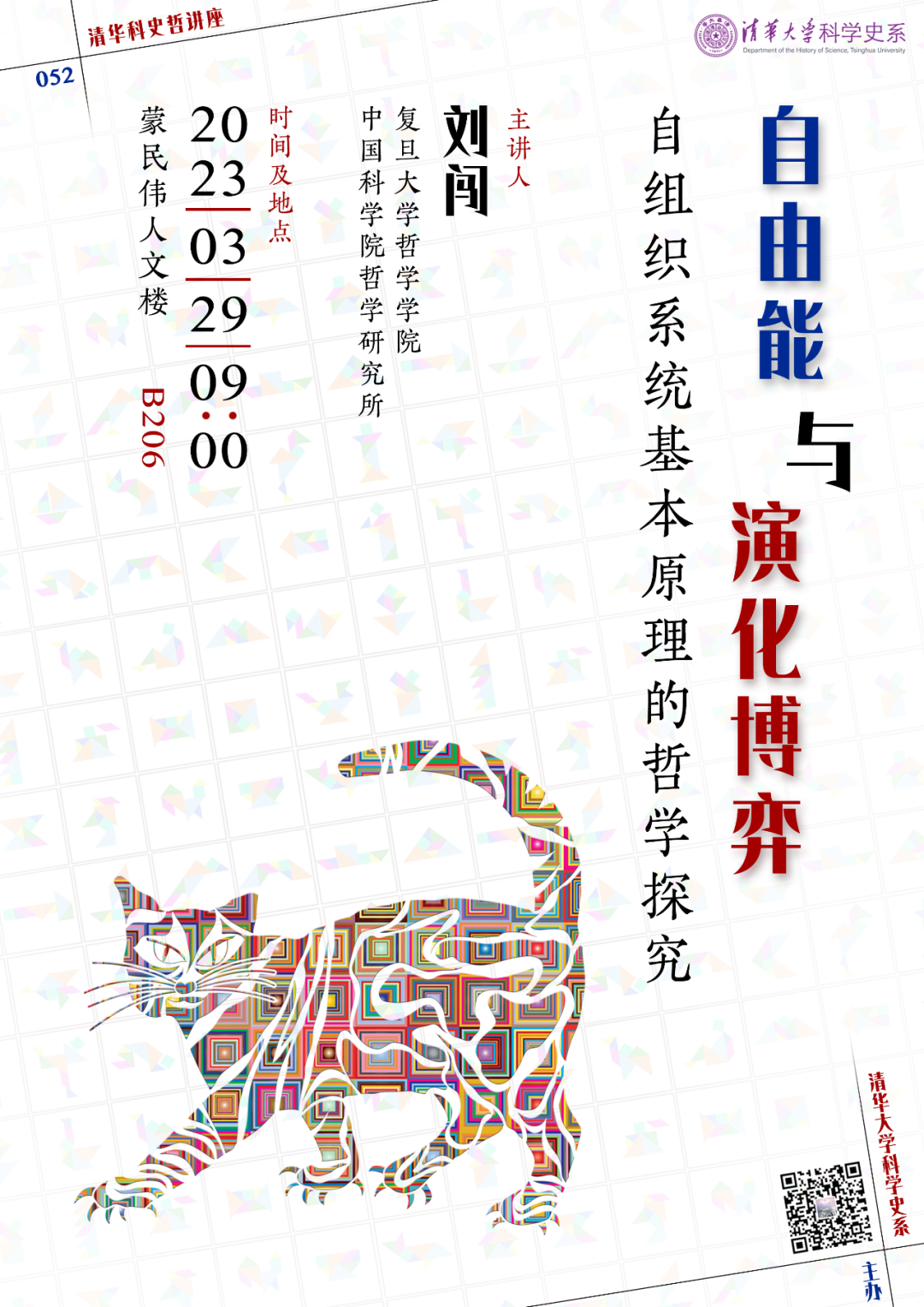
On the morning of March 29, 2023, Lecture 52 of the Tsinghua Science, History, and Philosophy Seminar was held in the seminar hall of the Department of the History of Science at Tsinghua University. The lecture was delivered by Professor Chuan Liu, a distinguished professor at Fudan University and the Dean of the Institute of Philosophy at the Chinese Academy of Sciences. The title of the lecture was “Free Energy and Evolutionary Game Theory: A Philosophical Inquiry into the Basic Principles of Self-Organizing Systems”, and it was commented on by Professor Wei Wang from the Department of the History of Science.
At the outset of his lecture, Professor Liu clearly articulated the core argument: he opposes Karl Friston’s view that the Bayesian brain theory can be derived from the free energy principle. Instead, he argues that evolutionary game theory provides a more plausible explanation for the Bayesian brain theory. The lecture was divided into four main sections: (1) explanatory approaches and basic principles, (2) predictive inference and the Bayesian brain, (3) active inference and the free energy principle, and (4) the Bayesian brain and evolutionary game theory.
- Explanatory Approaches and Basic Principles
Professor Liu began by categorizing scientific theories that explain natural phenomena into two broad types: dynamic theories commonly used in the physical sciences and evolutionary theories commonly used in the life sciences. He explained that the first type of explanation can be seen as studying “efficient causes”, while the second type focuses on “final causes”.
Dynamic theories often describe the rate of change or movement of a system over time using differential equations, based on initial conditions. Each natural system has its own laws or equations to describe its evolution. If nature is divided into different levels, the laws of higher levels can be derived from lower levels by substituting appropriate parameters into the equations of the lower level. Ultimately, Professor Liu suggested that the most fundamental rule might be the principle of least action.
For theories centered on “final causes”, such as those in biology, is there a corresponding basic principle? Professor Liu discussed Karl Friston's attempt to establish the free energy principle as the fundamental principle of self-organizing systems (including biological systems). According to this principle, any self-organizing system will minimize its free energy to maintain its integrity and avoid dissolving into equilibrium with its environment, provided certain boundary conditions are met.
- Predictive Inference and the Bayesian Brain
Professor Liu then moved on to discuss predictive inference and the Bayesian brain. He provided an overview of the Bayesian brain theory, which explains how animal and human brains predict and perceive the external world, plan actions, and survive through the interaction and complementarity of perception and action. The core of this theory is Bayes’ theorem, which assumes that the brain unconsciously updates posterior probabilities according to Bayesian principles.
The Bayesian brain operates as follows: first, the brain hypothesizes (based on prior probabilities) and uses this hypothesis to guide the organism's subsequent actions. When the organism acts, the outcome of the action may produce a predictive error or “surprise”. If this surprise exceeds a certain threshold, the brain receives a signal indicating a problem with the hypothesis, prompting it to update the hypothesis according to Bayes’ theorem.
This theory challenges the traditional view of perception as a one-way process (sensory input → brain processing → perceptual experience) and the idea in philosophy of mind that perception is about the mind conforming to the world, while action is about the world conforming to the mind. If the Bayesian brain theory is correct, the relationship between the mind and the world is one of mutual accommodation.
- Active Inference and the Free Energy Principle
Next, Professor Liu examined Karl Friston’s views on active inference and the free energy principle. Friston argues that the Bayesian brain is a special case of a broader framework called “active inference”, which all self-organizing systems in nature use to survive. Active inference is governed by the free energy principle.
Professor Liu criticized Friston's approach from three perspectives. First, regarding the relationship between the Bayesian brain theory and active inference, Friston primarily uses a “bottom-up” approach, starting from Bayes' theorem and building up to active inference through concepts such as survival models, inferential perception, predictive coding, and variational Bayes. However, the concepts of variational free energy and expected free energy are introduced as approximate strategies rather than exact derivations.
Second, regarding the relationship between active inference and the free energy principle, Friston uses a “top-down” approach, starting from concepts like Markov blankets, autopoiesis, and autocatalysis to derive active inference. However, the systems discussed in this approach are either overly simple or artificial intelligence systems.
Based on these observations, Professor Liu questioned whether the Bayesian brain theory can truly be derived from the free energy principle. He also criticized the normative foundation of the free energy principle, arguing that it is not a fundamental rule like the principle of least action but rather a theory that requires further explanation.
- The Bayesian Brain and Evolutionary Game Theory
In the final section, Professor Liu proposed using evolutionary game theory to provide a “teleological” explanation for the Bayesian brain and even the free energy principle. Evolutionary game theory, developed from game theory, was introduced into biology by John Maynard Smith, who replaced the rational agent assumption with biological fitness as the measure of a strategy’s success. After the concept of cultural evolution was incorporated, evolutionary game theory expanded back into the humanities and social sciences.
Regardless of whether the agents in a game are rational or conscious, repeated interactions often lead to outcomes resembling those of natural selection. In this sense, evolutionary game theory applies to both unconscious biological systems and conscious human societies.
Professor Liu demonstrated how evolutionary game theory can explain the Bayesian brain's mechanism of minimizing prediction errors. He assumed that there are two competing strategies in evolutionary history: one that minimizes predictive errors (or surprise) and another that does not use Bayesian principles. The latter strategy, being much less effective in perceiving and judging the external world, would eventually lose out and disappear in evolutionary competition. Similarly, certain pathological brains, such as those of schizophrenic patients, may fail to function properly due to their inability to minimize predictive errors. This suggests that minimizing predictive errors is an evolutionarily stable strategy for the Bayesian brain.
Professor Liu also mentioned that similar evolutionary game-theoretic explanations can be applied to the Bayesian updating of generative models, and these processes can be simulated in computers through modeling.
Discussion and Q&A
After Professor Liu’s presentation, Professor Wei Wang provided comments and posed questions from the perspectives of the significance of complexity science, the differences between governance and derivation relationships across theoretical levels, the limitations of the Bayesian brain, the details of active inference theory, and historical contingency. Professor Liu responded to each of these points. Some students in attendance also asked questions and received detailed responses.
Author: Shaojie Du
Reviewer: Wei Wang


